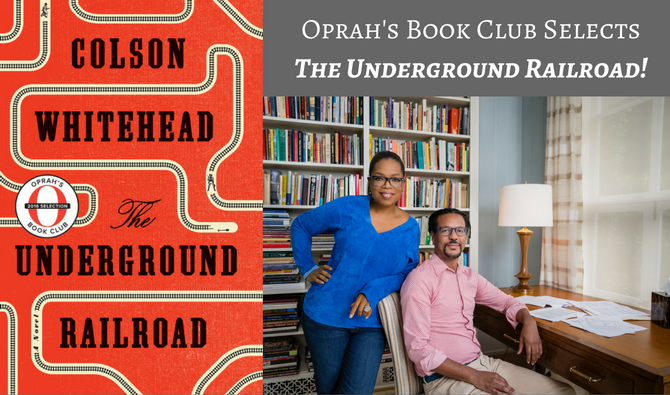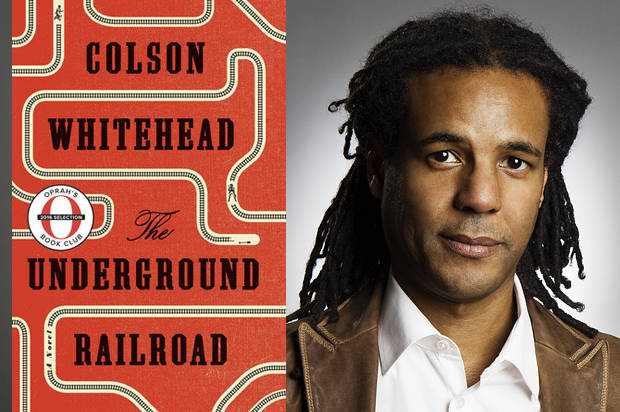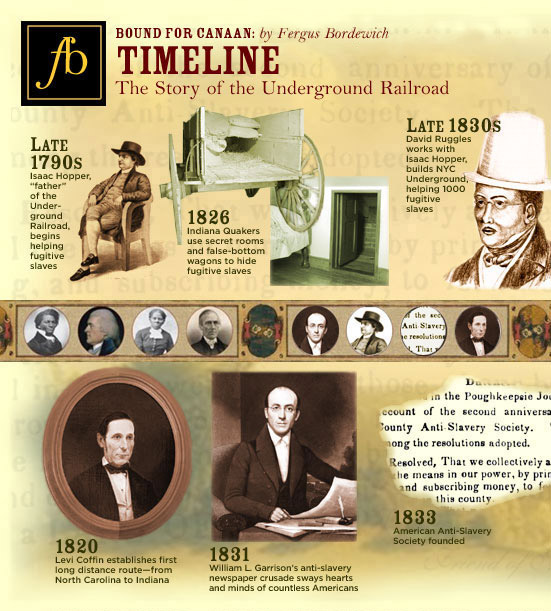JDCMustReadBooks
An online marketing consultant, an avid reader of 400 + books a year. Professional reader, reviewer, and blogger. Enjoy ARCs and new releases.
The Underground Railroad

By: Colson Whitehead
ISBN: 9780385537049
Publisher: Doubleday
Publication Date: 9/13/2016
Format: Hardcover
My Rating: 5 Stars
A special thank you to Doubleday and NetGalley for an ARC in exchange for an honest review.
Colson Whitehead delivers a gritty literary historical fictional suspense, a profound gripping journey THE UNDERGROUND RAILROAD, two young runaway slaves and their courageous fight for freedom and power.
Whitehead creatively crafts and weaves a story in a magical way. In Cora's world, the Underground Railroad s a literal railroad under the ground, leading from the slavery bondage to freedom in the North. History with a modern day twist. Relevant to today's world!
What if, each station (stop) represents a state of possibility? The courage of leaving, risking, stepping from the brutality of the plantation. Can you keep going once you have started?No turning back. Hope.
"Where Colson Whitehead Got the Idea for The Underground Railroad. Watch Video

The Underground Railroad was a network of secret routes and safe houses used by 19th-century enslaved people of African descent in the United States in efforts to escape to free states and Canada with the aid of abolitionists and allies who were sympathetic to their cause. The term is also applied to the abolitionists, both black and white, free and enslaved, who aided the fugitives
The escape network was not literally underground nor a railroad. It was figuratively "underground" in the sense of being an underground resistance. It was known as a "railroad" by way of the use of rail terminology in the code.
Whitehead intensifies the tension with his own code of metaphors, making this an exceptional read for both those interested in historical details of slavery, and those readers enjoying a twist of fiction to make things even more fascinating. The what if ? It could be a "real live" underground rail system?
The Underground Railroad consisted of meeting points, secret routes, transportation, and safe houses, and personal assistance provided by abolitionist sympathizers. Participants generally organized in small, independent groups; this helped to maintain secrecy because individuals knew some connecting "stations" along the route but knew few details of their immediate area.
Escaped slaves would move north along the route from one- way station to the next. "Conductors" on the railroad came from various backgrounds and included free-born blacks, white abolitionists, former slaves-either escaped or manumitted, and Native Americans. Without the presence and support of free black residents, there would have been almost no chance for fugitive slaves to pass into freedom unmolested. Wikipedia
Cora’s grandmother had been sold a few times, passed between slavers. Each thing had a value. In America, people were things. Best to cut your losses on an old man who won’t survive at trip across the ocean. A slave girl squeezing out pups was like a mint, money that bred money. If you were a "thing" – a cart or a horse or a slave- your value determined your possibilities.
Caesar approached Cora about the Underground Railroad. In Georgia, Cora is a slave on a cotton plantation. Caesar comes from a small farm in Virginia owned by a petite old widow. After her death she left no will. He was later sold south, with its fearsome legends of cruelty and abomination.
The Underground Railroad could help, with its secret trunk lines and mysterious routes. The idea of escape overwhelmed her. Their well laid plans do not go as they had imagined. They are being hunted.
Caesar was like no colored man she had ever met.Antislavery literature was illegal in this part of the country. Abolitionists and sympathizers who came down to Georgia and Florida were run off, flogged, and abused by mobs, tarred and feathered.

There was so much possibility traveling from state to state. The tunnels, the tracks, the desperate souls who found salvation in the coordination of its stations and timetables. They soon were in South Carolina. Ridgeway had become a proper and evil slave catcher.
Soon she is forced to leave and continues to try and outrun the catchers. They made little progress on a course of action, struggling with the problem of whom to turn to and the possible reaction from the other colored residents.
According to the law, most of them were still property, their names on pieces of paper in cabinets kept by the United States Government. For the moment, warning people was all they could do. From Georgia, South Carolina to North Carolina. In NC the Negros did not exist except at the ends of the ropes. Imprisoned in an attic.
More slaves led to more cotton, which led to more money to buy more land to farm more cotton. Whites outnumbered slaves two to one in NC, but in Louisiana and Georgia, the populations neared parity. Just over the border in SC, the number of blacks surpassed that of whites by more than a hundred thousand. It was not difficult to imagine the sequence when the slave cast off his chains in pursuit of freedom—and retribution.
In Georgia, Kentucky, South America and the Caribbean Isles, the Africans turned on their masters in short but disturbing encounters.
As the slave owners’ enforcers, and patrollers were the law: white, crooked, and merciless. They could stop anyone. Slaves caught off the plantation needed passes unless they wanted to go to jail or a beating. Free blacks carried proof or risked being conveyed into the clutches of slavery, and still they often were smuggled to the auction block. Rogue blacks who did not surrender, could be shot.
North Carolina would emerge in the most advantageous position of all slave states. Purchased existing slaves from farmers at favorable rates, just as Great Britain had done decades earlier. The new race laws forbid colored men and women from setting foot on NC soil.
She pictured two things: a contented, hard-won life in a northern city or death. Dreams and fantasies. She thought of the white boy she had killed. Whether in the fields or underground, or in an attic room, American remained her warden. What world it is that makes a living prison into your only haven. The status of a runaway?
Freedom was a thing that shifted as you looked at it, the way a forest is dense with trees up close but from outside from the empty meadow, you see its true limits. Being free had nothing to do with chains or how much space you had. Freedom was a community laboring for something lovely and rare. The Freedom Trail.
On to Tennessee, escaping wildfires. The state was cursed. The blaze and the disease—to justice. The whites got what they deserved. For enslaving her people, for massacring another race, for stealing the very land itself.
But, she thought, if people received their just portion of misfortune, what had she do to bring her troubles on herself? Every state was different. No chains fastened her misfortunes to her character or actions. Her skin was black and this was how the world treated black people.
References from Gulliver’s Travels, moving from peril to peril, each new island a new predicament to solve before he could return home. If Caesar figured out the route home, he’d never travel again. Unless Cora came with him.
Traveling from Georgia to South Carolina to North Carolina to Tennessee to Indiana, Cora has to maneuver her way away from Ridgeway, and all the other enemies which cross her path.Is America a delusion?
A wonderful pick for Oprah Book Club , rich in history, from the heartbreaking injustice of slavery, the author infuses fact and fiction for an engaging experience. From horror, cruelty, harrowing, sorrow, betrayal, pain, to courage, hope, and redemption. The costs of slavery. Each time Cora travels she has to reinvent herself and overcome the devastation of their race, while focused on survival. Danger surrounds her.Risking it all for pursuit of freedom.
I have a very serious editorial calendar, planning the reading and reviewing of all my books to keep organized by date of release. I had THE UNDERGROUND RAILROAD, set for Sept 13 (its original release date); however, came to my attention at the last minute, it was coming OUT a month early, in a surprise announcement from Oprah as her next title! My apologies for the delay in posting (when I thought I was a week early). Good news, in more hands sooner.
As you read, this incredible story, readers will see the haunting parallels with our current world situation today - A world filled with hatred, racism, and terror. Some are still living in the darkness of the past.
“The white race believes—with all its heart that it is their right to take the land. To kill Indians. Make war. Enslave their brothers. This nation shouldn’t exit, if there is any justice in the world, for its foundations are murder, theft, and cruelty. Yet here we are.”
Ideal for book clubs and numerous discussions: A remarkable story, and a highly talented author, worthy of Oprah’s endorsement!
Having read Thomas Mullen’s upcoming Darktown, (9/13) then Colson Whitehead’s THE UNDERGROUND RAILROAD, (9/13) and currently reading upcoming Jodi Picoult’s Small Great Things, (10/11) --there is a common thread. In addition to each of these award-winning authors' respective talent of storytelling, and the privilege of receiving early reading copies, there is a combined critical timely message:

Essential concerns of our time: prejudice, race, and justice. I commend these authors for tackling these difficult (much needed) and thought-provoking topics. The struggles and courage of those who have had to fight for freedom we all take for granted.
As our population faces their own beliefs of privilege, power, and race-- Racial awareness in our country is a critical key issue today and the more education, messages, and books regarding these controversial topics—To take notice—take charge--the better: in order to make our world a better and safer place. To live filled with love, equality, and peace
In addition to the digital copy provided, I also purchased the audiobook, narrated by Bahni Turpin for a spellbinding performance.
TIMELINE OF UNDERGROUND RAILROAD





